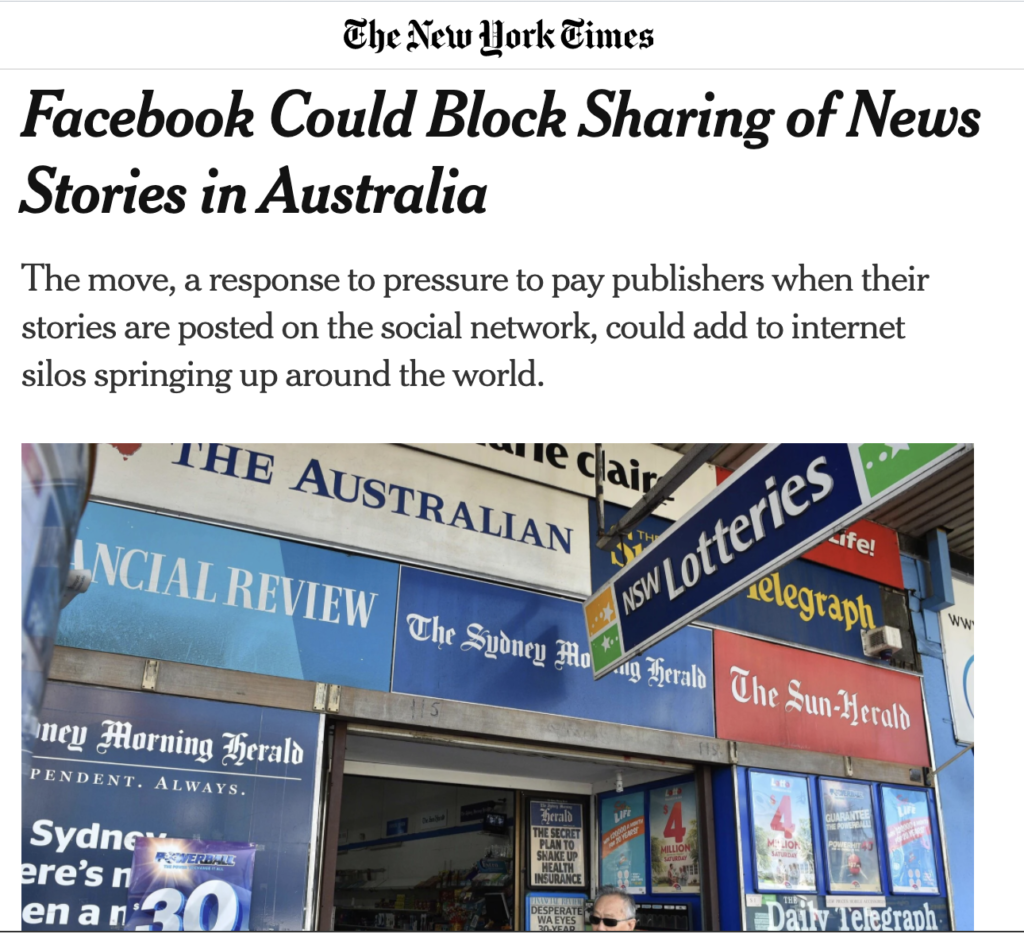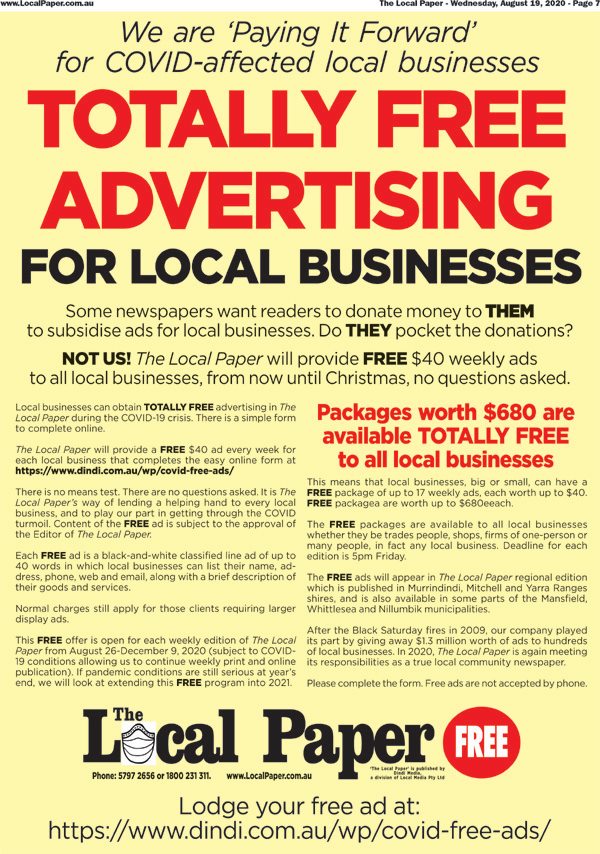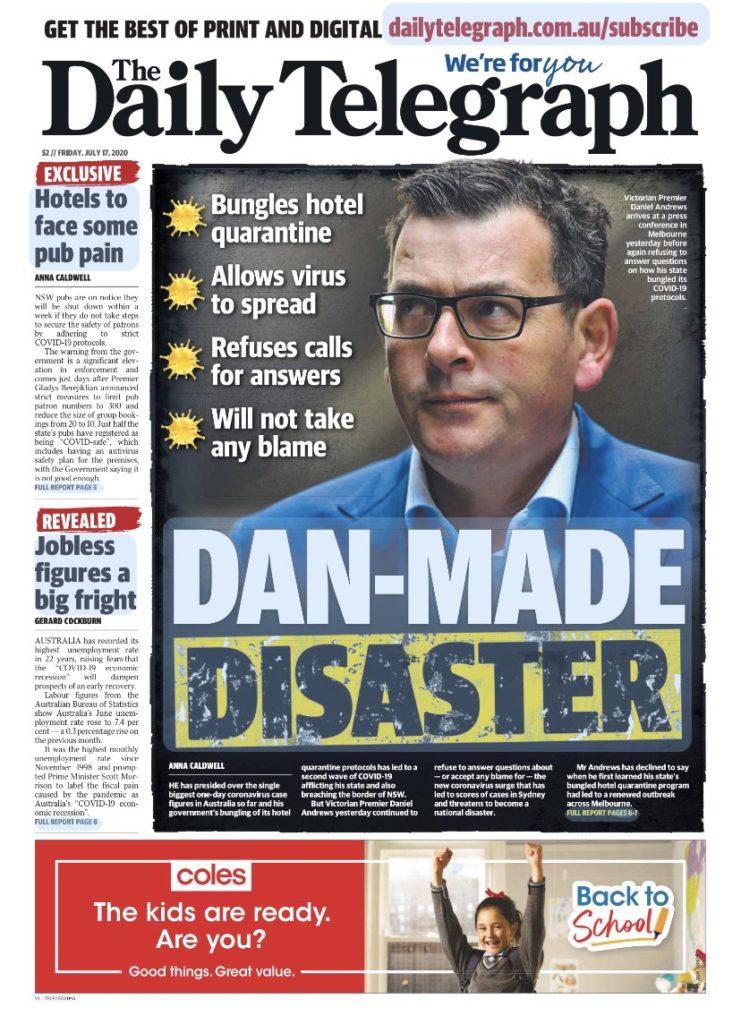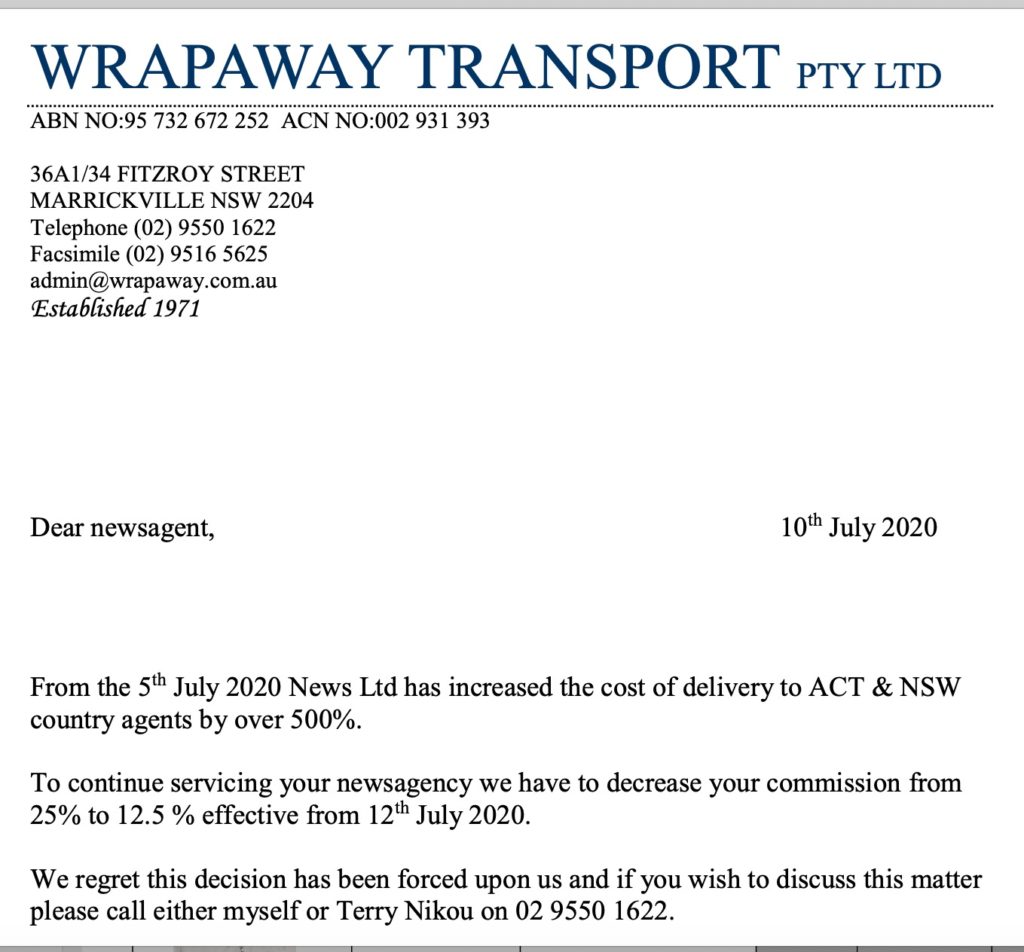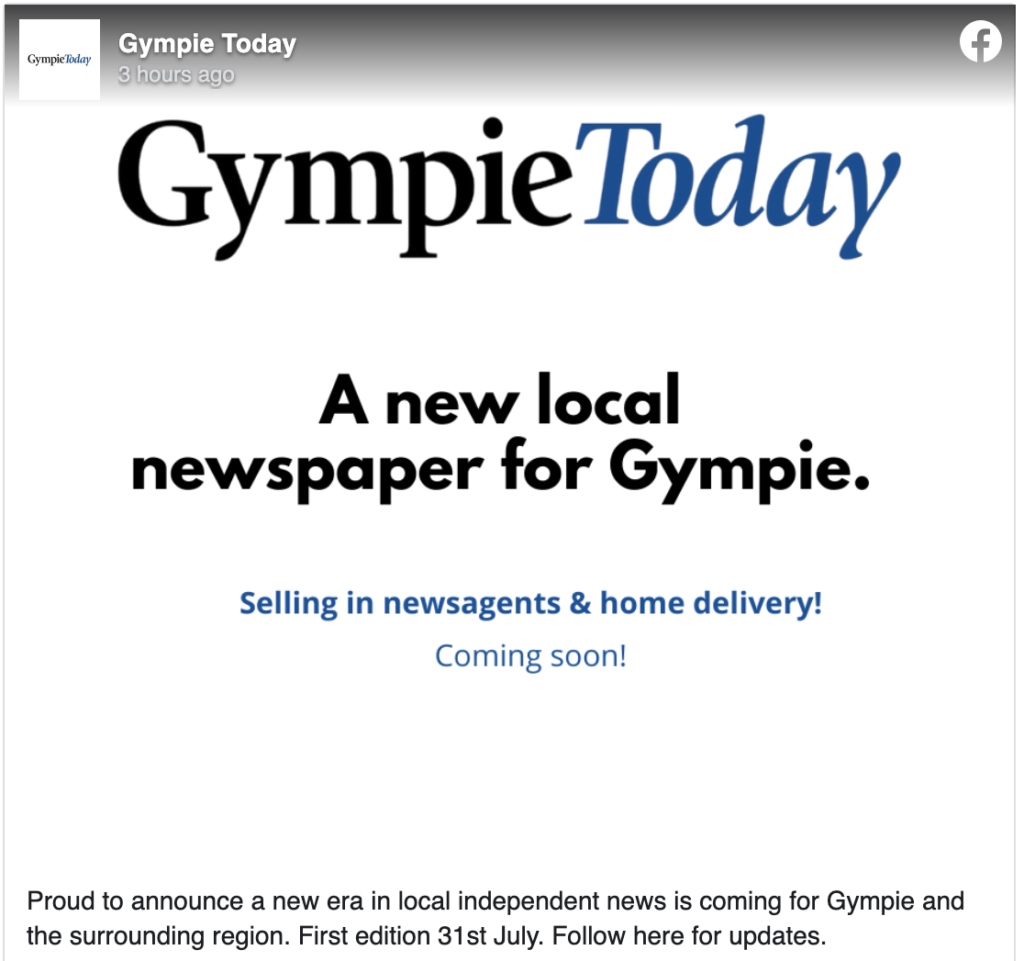Australians visiting Google in recent days have received a message from the company, a single line below the search box:
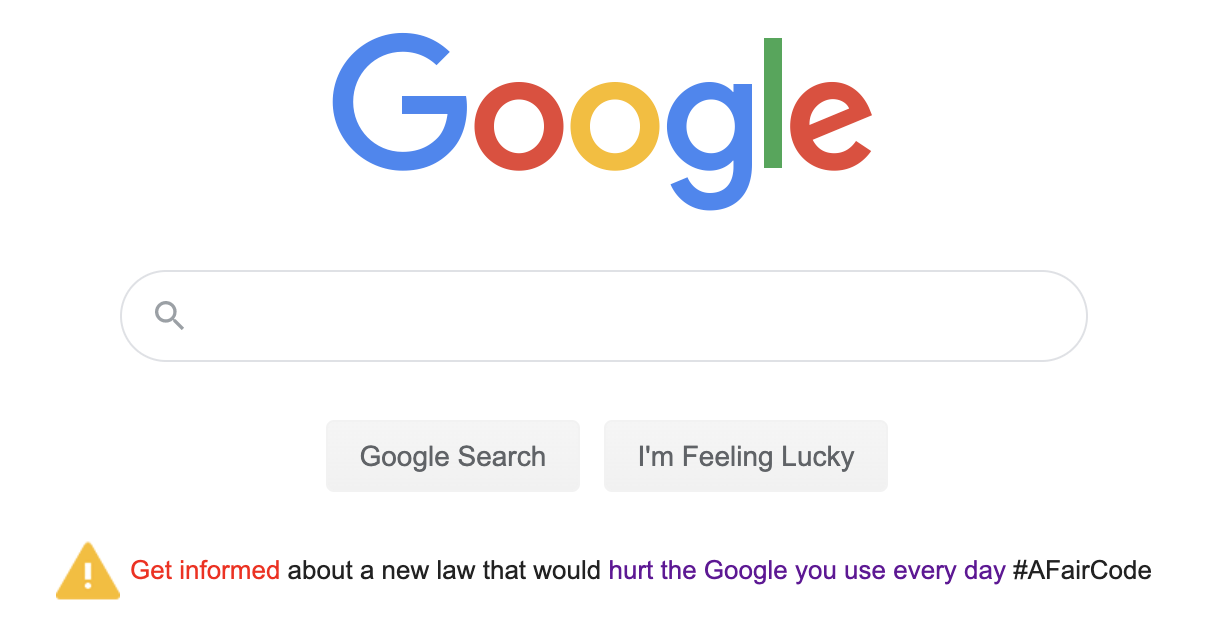
If you click on the link, it takes you to this open letter:
Open letter to Australians
We need to let you know about new Government regulation that will hurt how Australians use Google Search and YouTube.
A proposed law, the News Media Bargaining Code, would force us to provide you with a dramatically worse Google Search and YouTube, could lead to your data being handed over to big news businesses, and would put the free services you use at risk in Australia.
The way Aussies search every day on Google is at risk from new regulation
You’ve always relied on Google Search and YouTube to show you what’s most relevant and helpful to you. We could no longer guarantee that under this law. The law would force us to give an unfair advantage to one group of businesses – news media businesses – over everyone else who has a website, YouTube channel or small business. News media businesses alone would be given information that would help them artificially inflate their ranking over everyone else, even when someone else provides a better result. We’ve always treated all website owners fairly when it comes to information we share about ranking. The proposed changes are not fair and they mean that Google Search results and YouTube will be worse for you.
Your Search data may be at risk
You trust us with your data and our job is to keep it safe. Under this law, Google has to tell news media businesses “how they can gain access” to data about your use of our products. There’s no way of knowing if any data handed over would be protected, or how it might be used by news media businesses.
Hurting the free services you use
We deeply believe in the importance of news to society. We partner closely with Australian news media businesses — we already pay them millions of dollars and send them billions of free clicks every year. We’ve offered to pay more to license content. But rather than encouraging these types of partnerships, the law is set up to give big media companies special treatment and to encourage them to make enormous and unreasonable demands that would put our free services at risk.
This law wouldn’t just impact the way Google and YouTube work with news media businesses — it would impact all of our Australian users, so we wanted to let you know. We’re going to do everything we possibly can to get this proposal changed so we can protect how Search and YouTube work for you in Australia and continue to build constructive partnerships with news media businesses — not choose one over the other.
You’ll hear more from us in the coming days — stay tuned.
Thank you,
Mel Silva, Managing Director, on behalf of Google Australia
This is an emotive campaign by Google, arguing points not core to the proposed code. Google understands people better than most businesses thanks to the data they have. I get why they are arguing through an emotive narrative it makes sense. An article at The Conversation discusses the issue.
In my opinion, the planned move by the federal government is an interference in the free market economy, something the current government claims to hold dear.
News outlets have sought to be listed on Google and other online platforms. They have done this using techniques to lift their rankings online. They have done this deliberately, when they could have, alternatively, blocked their sites from being listed. They are where they are because, in part, of their actions.
News outlets have, from time to time, also encouraged the sharing of their stories on online platforms.
I get that news outlets don’t like that Google and other platforms have taken their ad revenue. That’s competition as they well know. I think the loss of ad revenue is the core issue here. Publishers need to realise the world has changed and that old media platforms, newspapers, TV and radio are not as interesting to consumers as they used to be. That’s not the fault of Google and others.
This move by the government looks and feels like pandering to media giants like News Corp. It’s political, and as such is not, in my view, good policy. This is demonstrated by the government exclusion of public broadcasters from benefiting from the proposed legislation.
The ACCC, responding to Google’s open letter says A healthy news media sector is essential to a well-functioning democracy. I don’t see the code as facilitating a healthy news media. One could argue that the extraordinary concentration of media ownership, especially newspapers and related online platforms, in Australia is a considerably bigger challenge to democracy.
I hope the code does not get up as it would set a precedent for government intervention. Indeed, it reminds me of 1999 when the government facilitated the taking away of the exclusive and protected status of newsagents for the distribution of print media products in Australia. It did this without supportive compensation for newsagents. Newsagents were told it’s business, suck it up, we’re not going to protect you.
News outlets worried about their journalism being on platforms like Google can stop this themselves. That is what they should do. However, I suspect that is not their concern as much as is the collapse in ad revenue.
Google, Facebook and others are not heroes in my view. I wish they would make a heftier tax contribution in Australia based on considerable revenue. I wish they did not engage in tax minimisation. schemes that reduced the contribution they make to Australia and Australians. Indeed, I wish that of all big businesses, including big media outlets.
Hmm, now there’s a thought, how much could Australian journalism benefit from big media companies that do engage in tax minimisation through offshore arrangements not doing so? Plenty, I suspect.
The Guardian has provided good analysis as to the proposed legislation and why Google is opposed to it.


